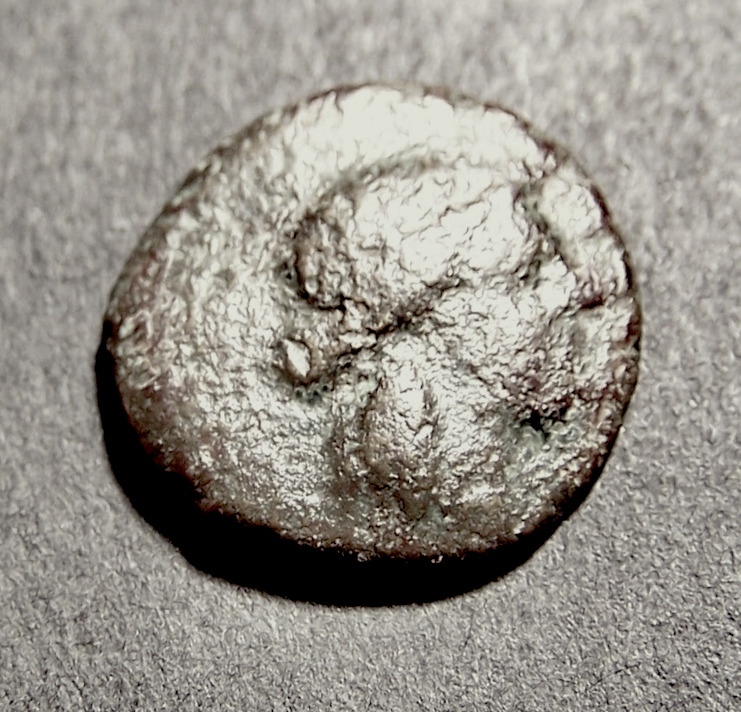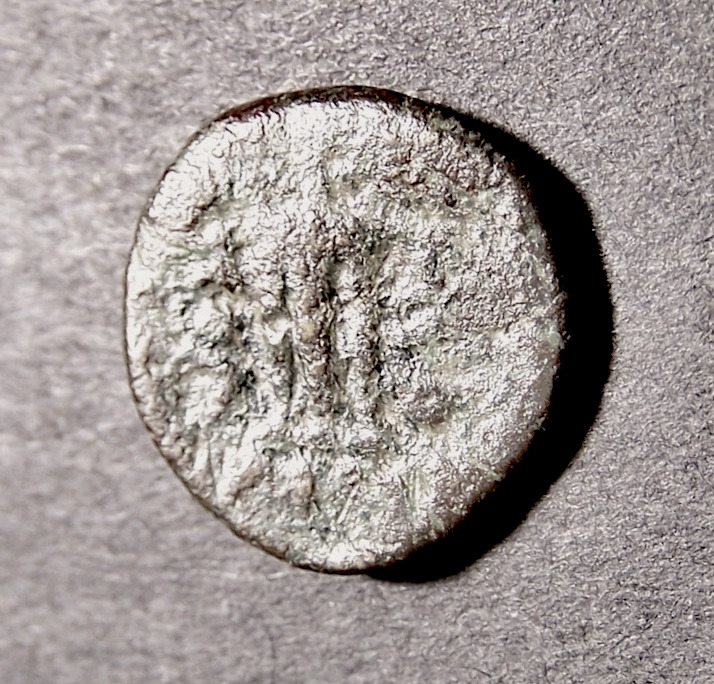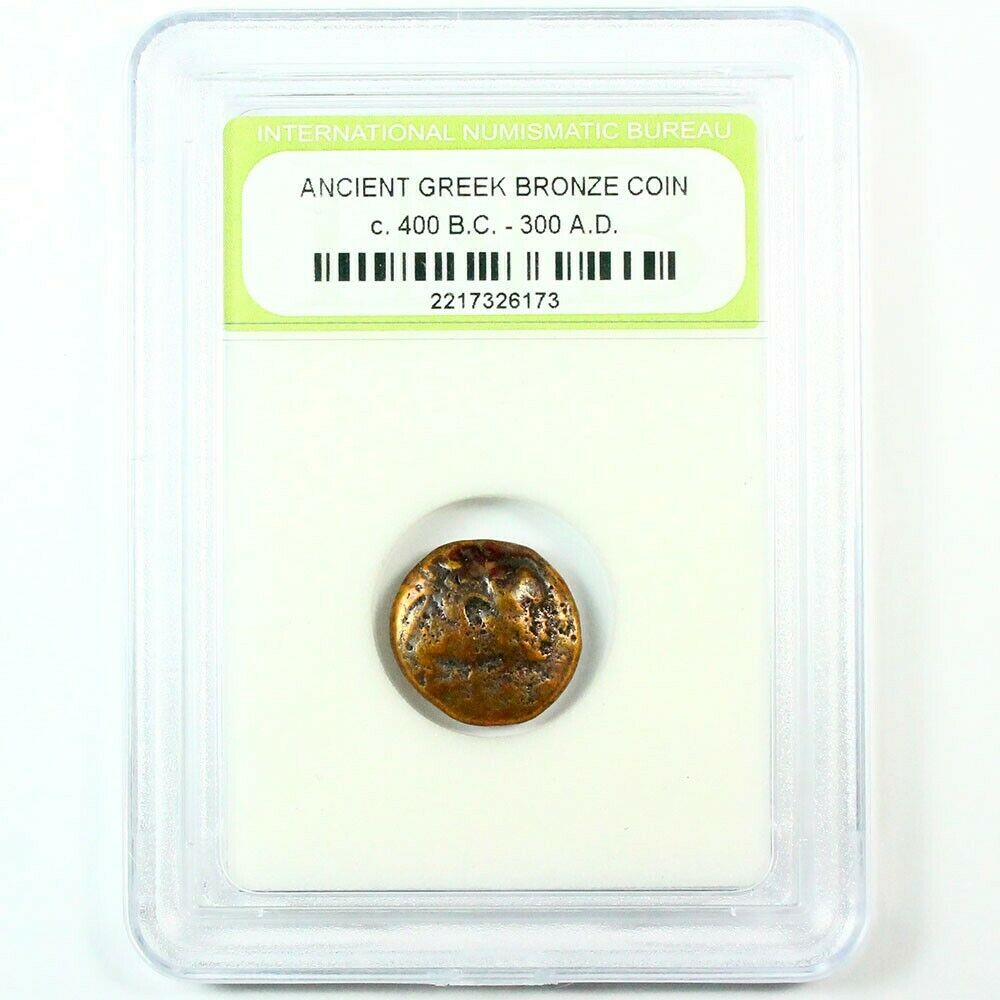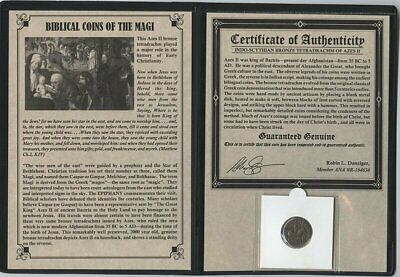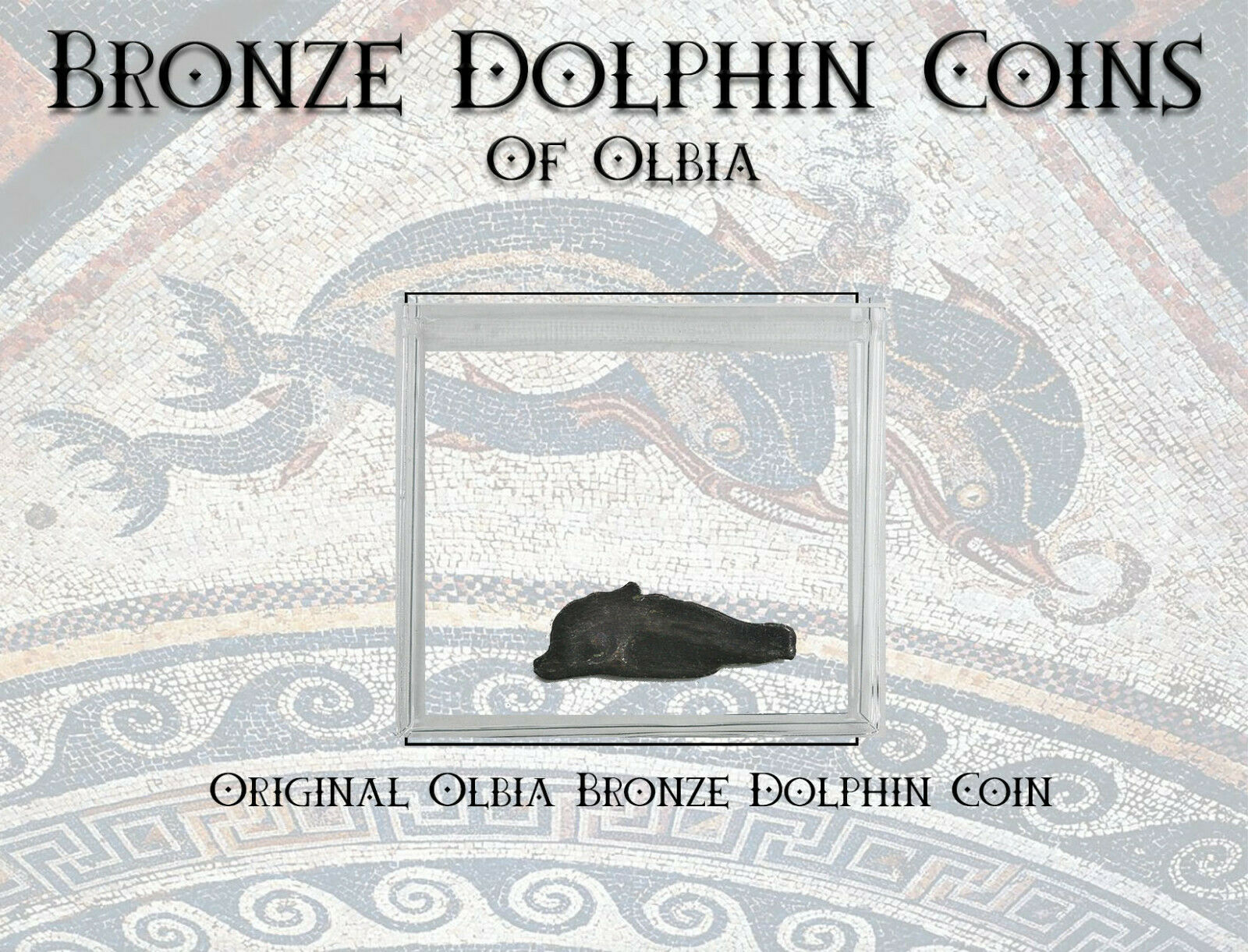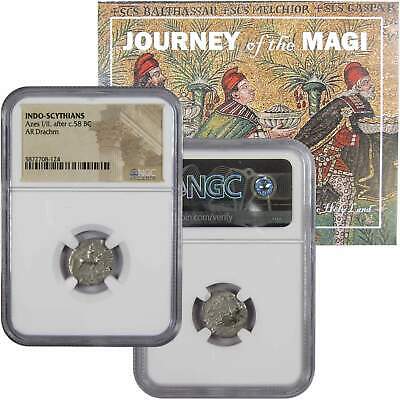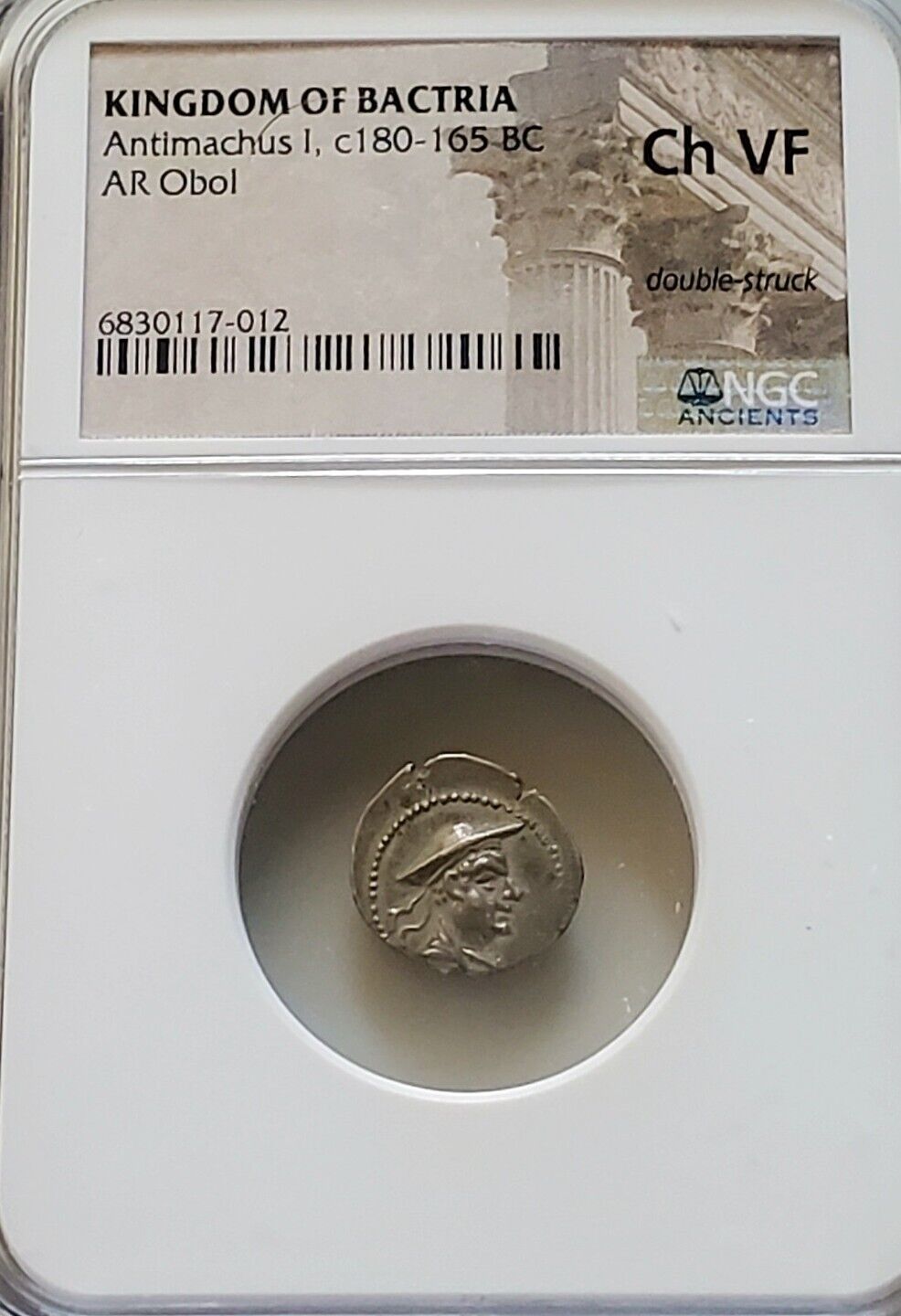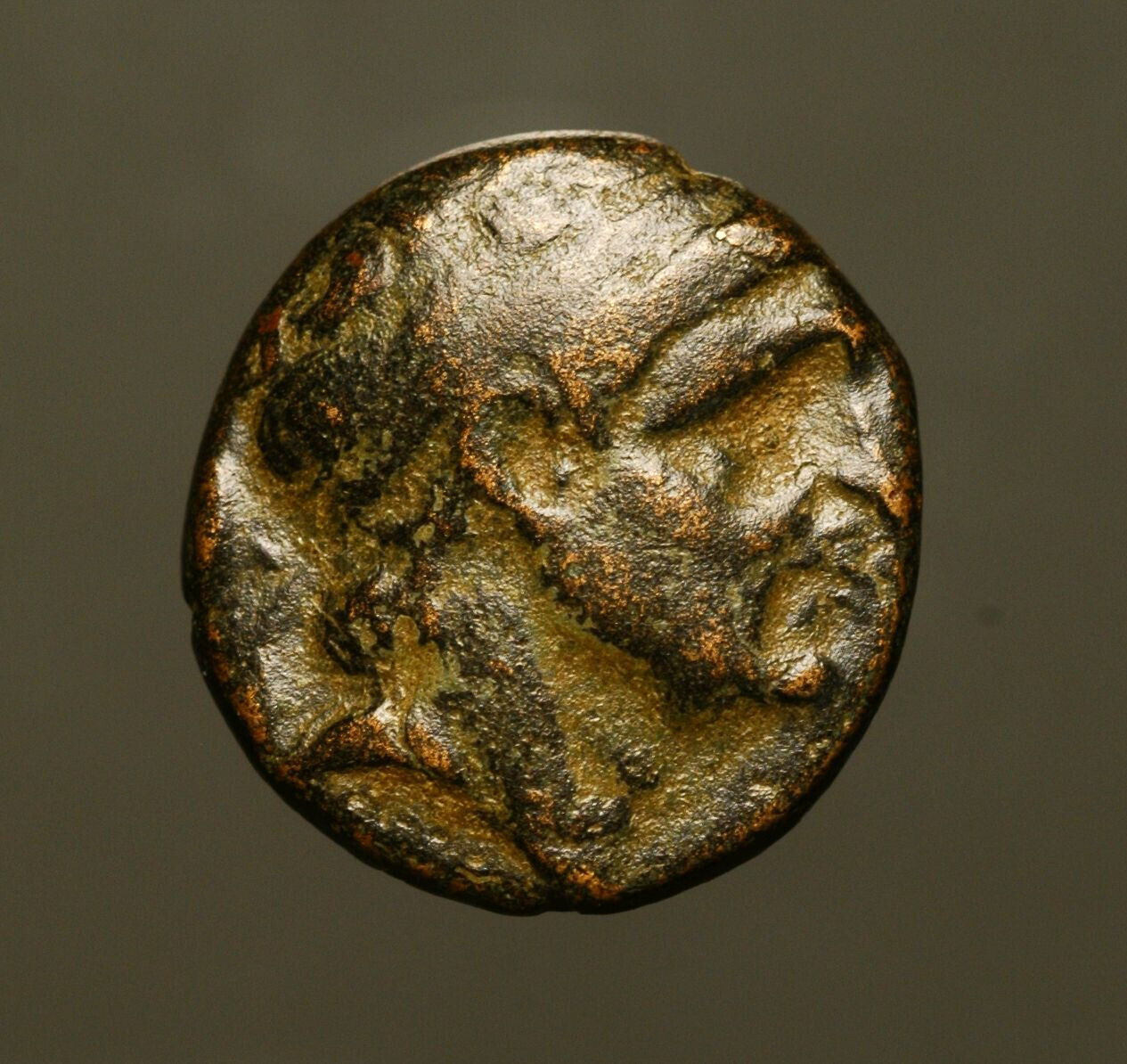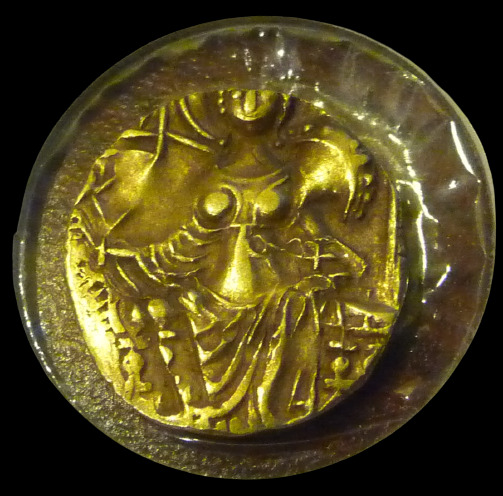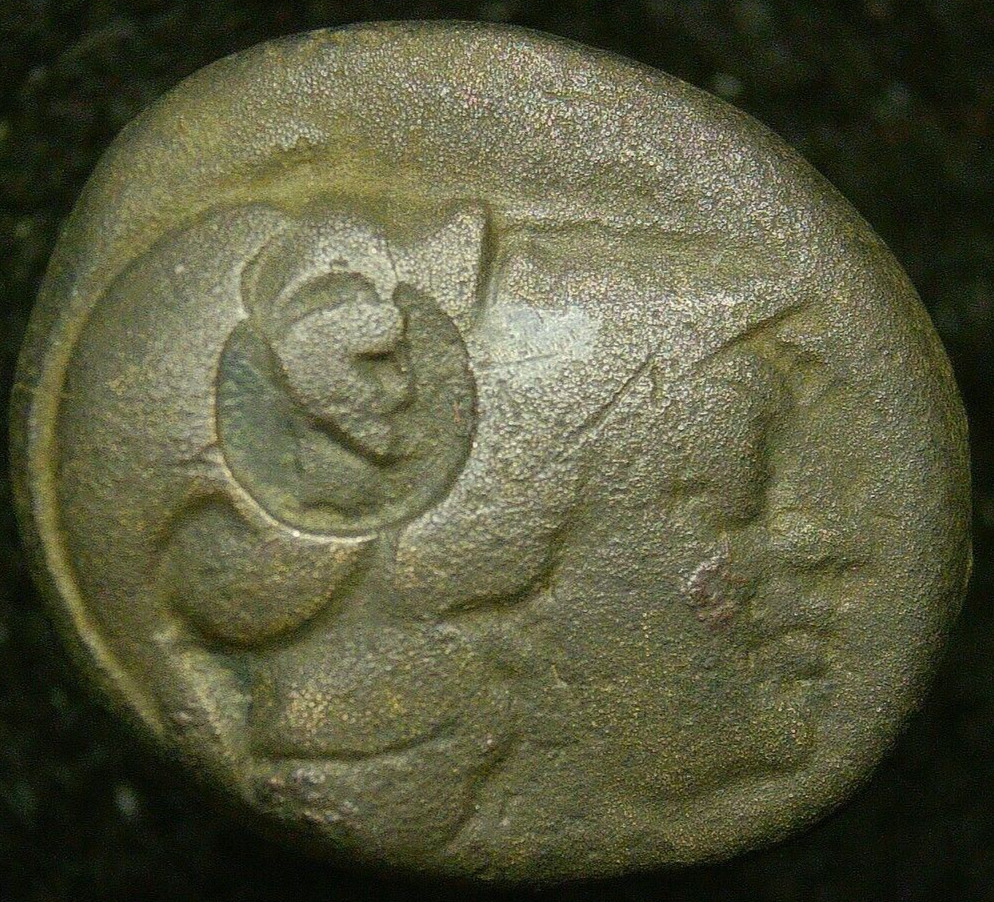-40%
Ancient Greek Coin, Mythical Apollo & His Delphi Altar, ca 3rd cent. BC, 13mm
$ 0.66
- Description
- Size Guide
Description
ANCIENT GREEK COINThis auction is for an ancient Greek coin depicting Apollo on the obverse and a tripod altar on the reverse. It is 13=14 mm and 1.76 gm.
APOLLO
Apollo
was a major Greek god recognized at various times in ancient Greek times as the god of light and the sun; truth and prophecy; healing; plague; music; and poetry.
In mythology, he was the son of Zeus.
Apollo was adopted by the Romans as they often did with other cultures’ religious and cultural icons.
He personified harmony, order and reason and was associated in one way or another with a long list of subjects: music, poetry, plague, oracles, sun, medicine, light and knowledge.
He is often depicted wearing nothing and holding a bow, arrows, lyre, laurel wreath, and/or palm branch.
The ancients built many temples dedicated to Apollo, the most famous is the Temple of Apollo at Delphi.
He is often depicted on coins with or at an altar.
ANCIENT ALTARS
Ancient cultures used altars to conduct religious ceremonies for sacrifice, worship and/or prayer.
It was not only a feature of a temple setting, but was inherent in the practice of animal sacrifice.
Greek altars were generally elliptical in shape consisting of an elevated base approached by steps.
The tripod (from the Greek word for 3-footed) altar used by the Greeks and Romans was a
piece of religious furniture used for offerings or other ritual procedures. As a seat or stand, the tripod is the most stable furniture construction for uneven ground, hence its use is universal and ancient. It is particularly associated with Apollo and the Delphic oracle in ancient Greece.
The word "tripod" comes from the Greek meaning "three-footed."
Atop the sacrificial tripod altar was a detachable cauldron
(
lebes
–
λέβης - pl. lebetes
)
with a rounded bottom.
As usual, the pictures really don't do justice. Let me know if you have questions.
Absolute Guarantee of Authenticity
I have collected ancient coins for many years and have always bought coins from trusted, reputable dealers. The details I describe (emperor, location, legends, etc) are derived from well-known and certified attribution sources. The descriptions are guaranteed accurate as much as the condition of the coin allows. This
Guarantee of Authenticity
does not make any claim or estimate of the value or grades of the coin(s).
ALL OF MY ITEMS COME WITH A GUARANTEE OF SATISFACTION , IF ANY ITEM IS NOT AS DESCRIBED IT CAN BE RETURNED IN ITS ORIGINAL CONDITION FOR A REFUND OF THE PURCHASE PRICE.
SHIPPING & HANDLING POLICY
I mail all orders in an appropriately sized bubble envelope that includes tracking and delivery confirmation. This is something that protects the merchandise better and allows you to follow your order online. For this service, buyers will
only be charged one flat rate
charge of .00
which will cover the costs of any number of auctions purchased. (International buyers, see below) So, yes, I will
combine shipping and handling costs if you win multiple auctions
.
PayPal only, please.
